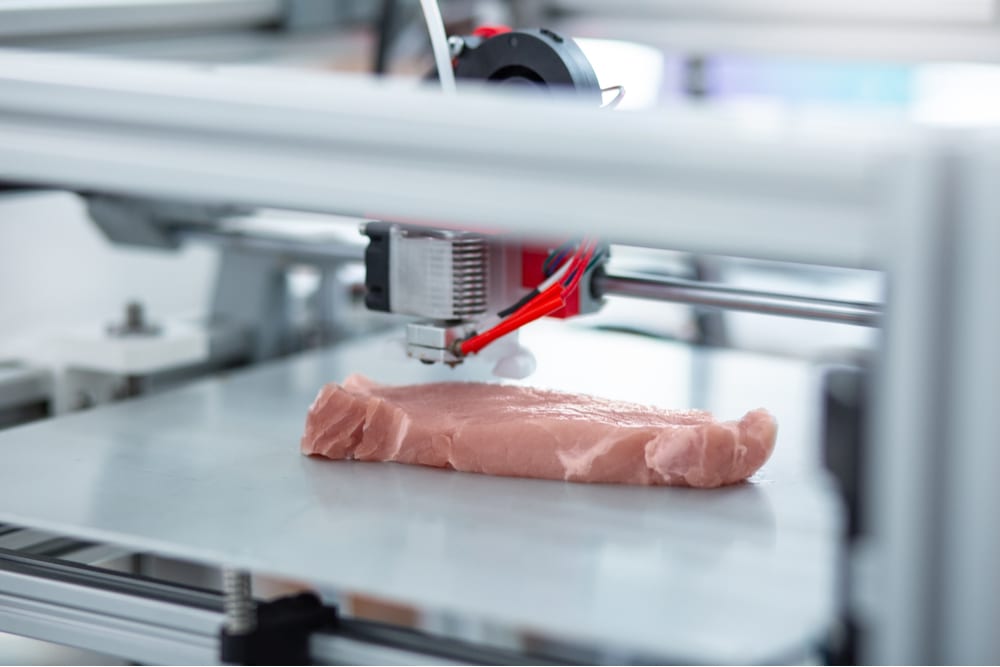
By: Tilman Reinhardt, Alessandro Monaco, and Kai Purnhagen (European Law Blog)
The opening of the Paris Olympics on July 26, 2024, coincided with a potentially transformative moment in one of France’s most iconic culinary traditions. Gourmey, a French startup specializing in cultivated meat, submitted applications for novel food authorization for its cultivated foie gras in the EU, as well as in Singapore, Switzerland, the United Kingdom, and the United States. This marks the first-ever authorization process for a cultivated meat product in the EU, signaling a potential “legal disruption” and attracting significant interest from both policymakers and researchers.
Cultivated meat, derived from animal cells grown in controlled environments outside of living animals, is seen as a promising solution to the environmental and ethical concerns associated with conventional meat production. However, there are also acknowledged scientific, sustainability, and regulatory hurdles. Despite these challenges, the first commercial cultivated meat product was introduced in Singapore in 2020, after the American company Eat Just received regulatory approval for chicken nuggets partially composed of cultivated cells. As of May 2024, these nuggets are now available in Singaporean retail stores, and other cultivated meat products have since been approved in Singapore, the United States, and Israel. Regulators in various countries are working closely with innovators to create pathways for these products to reach the market.
The EU, however, has not yet taken a leading role in regulating cultivated meat. Most food innovations, including cultured meat, fall under the EU’s novel food framework, outlined in Regulation (EU) No 2015/2283. While this framework is praised for its thoroughness, it has been criticized for stifling innovation due to its lengthy and complex procedures. Innovators are also concerned about political interference in the approval process, as cultivated meat faces strong opposition in some EU Member States. For instance, since 2020, the French legislature has repeatedly attempted to ban the use of meat-related terms for alternative protein products. In November 2023, the Italian government went a step further, enacting Law No. 172/2023, which prohibits the production and sale of cultivated meat…
Featured News
Federal Judge Allows Antitrust Case Against Claritev and Health Insurers to Move Forward
Jun 5, 2025 by
CPI
Michael Jordan’s NASCAR Team Denied Charter Bid After Appeals Court Ruling
Jun 5, 2025 by
CPI
European Commission Unveils Strategy To Position EU As Leader of Digital Global Order
Jun 5, 2025 by
CPI
Delivery Giants Settle with New York City Over Wage and Fee Cap Disputes
Jun 5, 2025 by
CPI
Former DOJ Antitrust Leader Launches Bid for Colorado Attorney General
Jun 5, 2025 by
CPI
Antitrust Mix by CPI
Antitrust Chronicle® – Industrial Policy
May 21, 2025 by
CPI
Industrial Strategy and the Role of Competition – Taking a Business Lens
May 21, 2025 by
Marcus Bokkerink
Industrial Policy, Antitrust, and Economic Growth: Some Observations
May 21, 2025 by
David S. Evans
Bolder by Design: Crafting Pro-Competitive Industrial Policies For Complex Challenges
May 21, 2025 by
Antonio Capobianco & Beatriz Marques
Competition-Friendly Industrial Policy
May 21, 2025 by
Philippe Aghion, Mathias Dewatripont & Patrick Legros